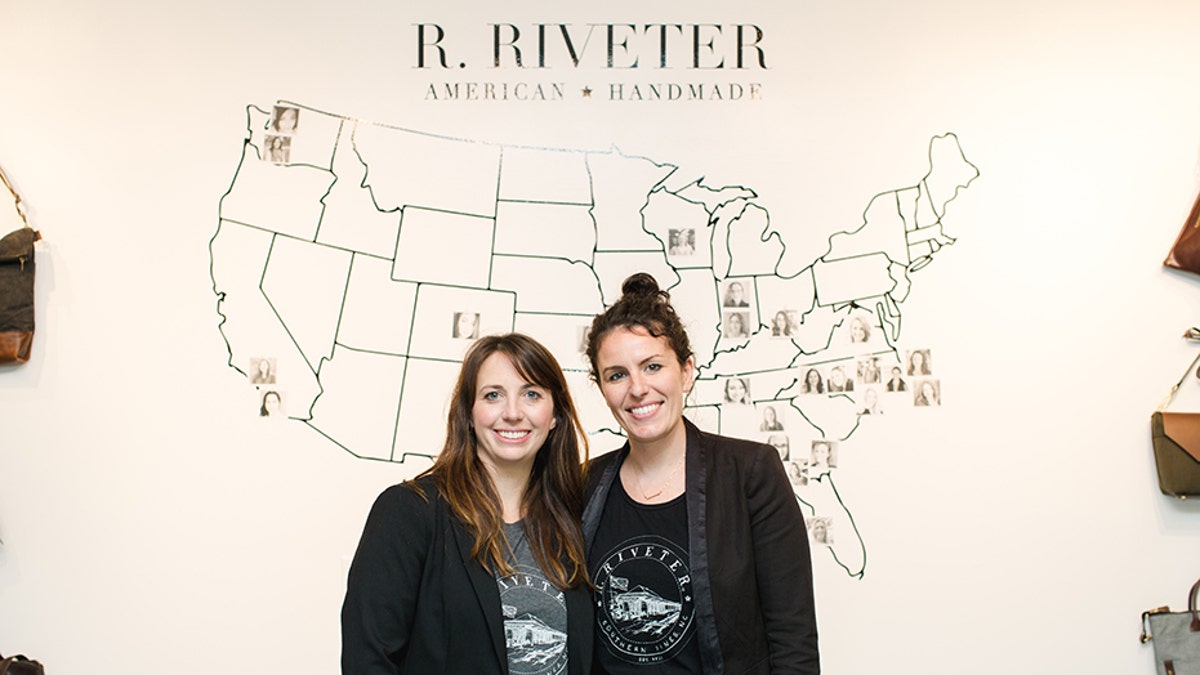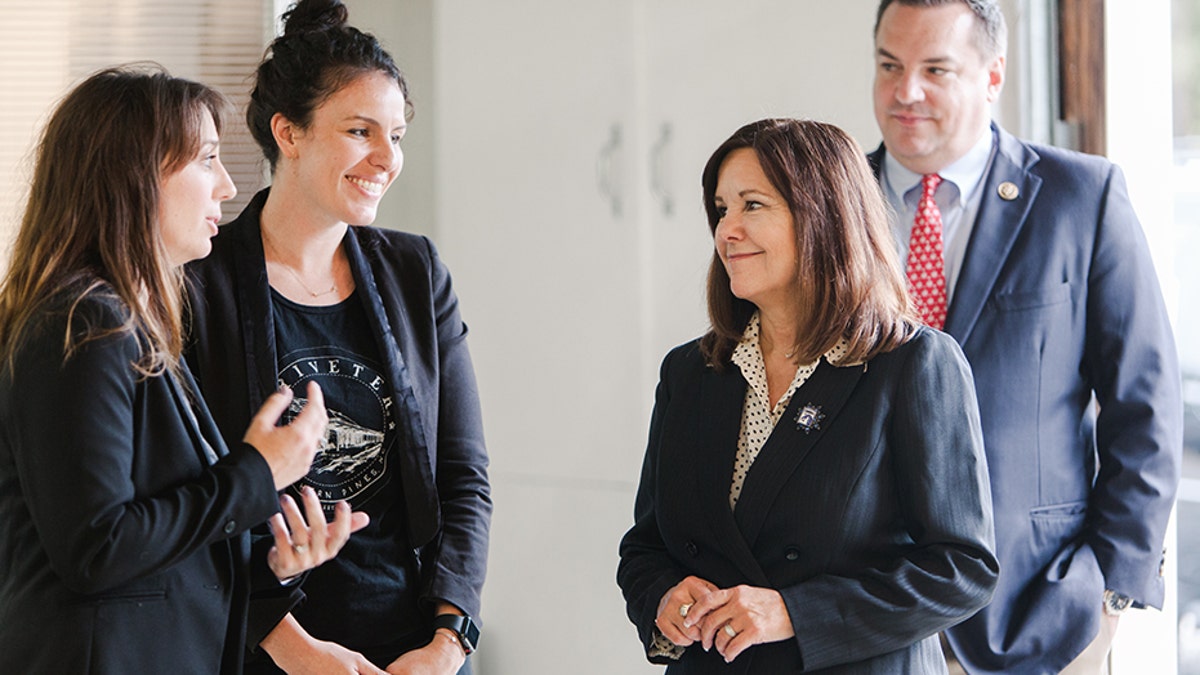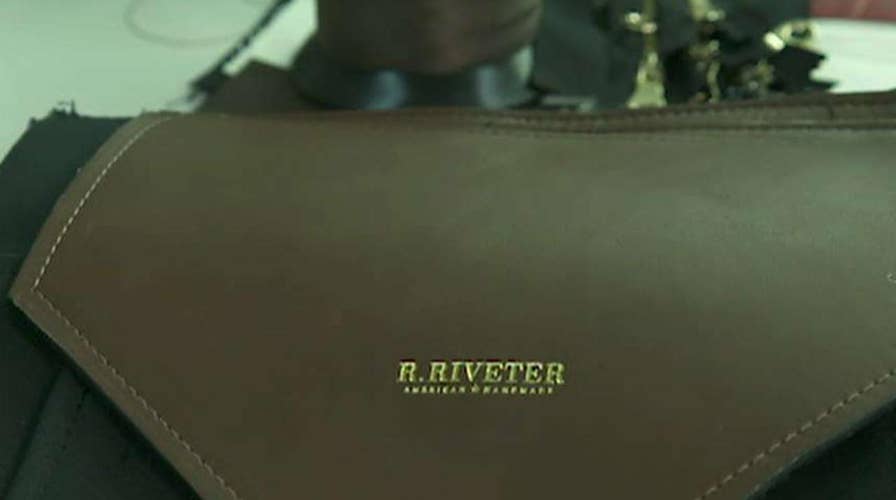Handbag company helps military spouses work from home
Two women have founded a handbag company which is helping to trim the jobless rate of military spouses; host of The Daily Briefing Dana Perino provides the inside scoop.
While the national unemployment rate dropped to a record low last month, veterans of the wars in Iraq and Afghanistan are struggling to find jobs, according to the most recent report from the Labor Department.
The jobless rate among post-Sept. 11 veterans rose from 3.9 to 4.5 percent over the last year -- an exception to a report that showed veteran unemployment as a whole dipped slightly during the same time period.
One small business is on a mission to address the problem by hiring veterans and military spouses and affording them the flexibility of “working from home” -- meaning from wherever military life may take them.
“Being a military family, you’re going to move every two to three years on average,” said Cameron Cruse, one of the founders of the North Carolina-based handbag company R. Riveter. “You have to uproot your life and find a new job and a new identity. It takes so much every time you do it that a lot of times military people just give up.”
Cruse, 31, and co-founder, Lisa Bradley, 34 — both military spouses with master’s degrees — are no ordinary self-starting entrepreneurs. They’re a formidable combination of yin-and-yang who founded R. Riveter, which has provided a vital livelihood for spouses of the U.S. military who otherwise would be struggling to find meaningful work.
“We wanted to be part of the solution,” said Bradley, who’s had to move five times in six years.
Using a few scraps of leather and a single sewing machine from the attic of Cruse’s home, R. Riveter was born in 2011. Eight years later, the company — named after Rosie the Riveter, a cultural icon of World War II representing the women who worked in factories and shipyards during the war — has been nothing short of an American success story.
“If you’d have told us then that we were going to take on manufacturing retail and military spouse unemployment, I would have told you, ‘you’re crazy,’” Cruse laughed.

The company founded by Lisa Bradley, left, and Cameron Cruse has provided work opportunities for U.S. military spouses.
From Washington state to Ohio to Florida, some 50 women — known as “Riveters” — have cut and sewn individual parts of the bags from home before mailing them to the company's headquarters in Southern Pines, N.C., where workers assembled the pieces in the warehouse.
The finished products: finely crafted leather and canvas handbags sold online and in R. Riveter’s flagship store. Each bag has been stamped with its own unique Riveter ID number and named after an American heroine, such as Margaret Corbin, the first woman to fight as a soldier in the Revolutionary War and the first woman to receive a military pension from Congress.
“We wanted a different work-from-home opportunity for, really, the modern-day woman who is trying to do it all,” Bradley said.
“This light bulb went off for us when we thought about all the military families struggling out there — asking, what happens when my spouse moves or he or she is deployed or in training and I have to go home and take care of my kids? What about my job?” Cruse added. “And, there was the idea — mobile, flexible income for military spouses.”
“The most important thing about what we do is that military spouses get to make parts and pieces from wherever the military takes them, and then they continue to take that work with them wherever they go,” she continued. “So, they get to move from Georgia to Colorado to Washington state and then back to Georgia and never have to let go of that job and that R. Riveter community that they’ve become a part of.”
After an appearance in 2016 on ABC’s hit series “Shark Tank,” billionaire Mark Cuban, the owner of the Dallas Mavericks, invested $100,000 into the company, which saw sales increase from $300,000 to $2.4 million.
Now, a third of every dollar spent on the company’s merchandise has gone to a military family in need — a detail that caught the attention of second lady Karen Pence, who visited the North Carolina factory in November 2018 and lauded the company for creating a business model that “allows [military] spouses to work for them no matter where they live in the U.S.”
For each Riveter, the opportunity to work remotely and provide a steady income, while also becoming part of a nationwide network of other military spouses, has been life-changing.
“It gives me an identity — it gives me something that I can take pride in, knowing that this is going to be a gift and somebody is going to be able to enjoy it for a long time coming,” said Jennifer Campos, a busy mother of five living at Fort Benning in Georgia, whose husband has been deployed overseas.
“It’s my own little corner in the world to sit there and enjoy sewing,” Campos said. “And, I’m able to stay home and still be that stay-at-home mom for my kids, which I did for 13 years before I applied to work for R. Riveter.”
Scotty Geonetta-Inge, who joined the Army when she was 20 and whose husband has been active-duty military, praised the opportunity to work for a company that understood the struggles of military families.
“Being a single mom a lot, with a spouse that’s often gone, this company has helped tremendously because they work around our schedules,” Geonetta-Inge said. “It’s definitely filled a void for me.”
She added, “It also helps out a lot financially. I’m able to keep my daughter in day care. I also have a special needs child. Just working here part-time is so beneficial.”

Karen Pence, wife of Vice President Mike Pence, visited the factory in North Carolina in November 2018.
For Bradley and Cruse, the drive to start their own company has represented a cause greater than themselves.
CLICK HERE TO GET THE FOX NEWS APP
“This was always for a greater purpose,” Bradley said. “You’re taking on the employment of other people and that just takes it to a whole other level. Failure is not an option.”
“It’s really neat that you can still start something from nothing in America,” she added. “That drive to make a difference and the passion for what you’re doing, you can start from an attic and you can grow a business with just that.”










































